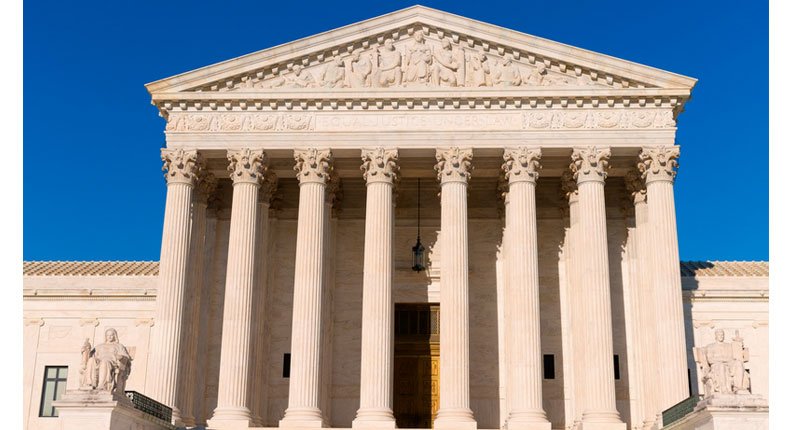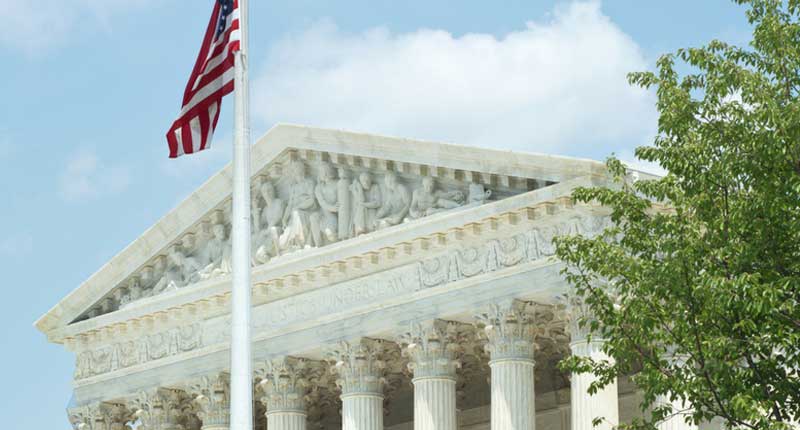

Police Officer Conduct in School Settings Addressed By Supreme Judicial Court
On August 29, 2017, the Massachusetts Supreme Judicial Court announced a decision that required the court to balance an individual’s right to be free from unreasonable searches on school property against the public’s interest in maximizing safety in schools. In this case, school officials saw the defendant, who was not a student, on the grounds of a public school. The defendant entered the school, lied about his identity and his reason for being there, and ultimately returned to the school parking lot. School officials approached the defendant in the parking lot and, after smelling marijuana, brought him into a conference room inside the school and called the Milton Police Department. Importantly, when the reporting police officer arrived, school officials did not inform her of the defendant’s interactions with school officials or that he had lied in order to enter the school. Operating only on her knowledge that the vice-principal was “excited” and that the vice principal and principal were “rattled,” the police officer proceeded to conduct (1) a pat-frisk and search of the defendant’s person, during which she found marijuana and close to $3000 in cash, and (2) a pat-frisk and search of the defendant’s backpack, during which she found a bottle of alcohol, a bag of marijuana, a scale and a loaded handgun. The police officer then arrested the defendant. The defendant was later tried and convicted in Quincy District Court of various gun and drug charges. Because the police officer did not have information from school officials to suggest that the defendant was criminally trespassing on school grounds, or that the defendant was armed, the Court held that the pat-frisk and search of the defendants’ backpack was not justified. In a split decision, the Court ruled that when a police officer conducts a search in a school setting, his conduct is governed by traditional Fourth Amendment standards rather than the reduced standard applied to searches by school officials when acting to ensure student safety. This means that when a police officer is investigating a suspicious person on school grounds, the officer must have reasonable suspicion supported by articulable facts that the defendant committed a crime in order to conduct a “pat frisk” of the person. Furthermore, the police officer must have probable cause to conduct a search, along with a search warrant, unless an exception to the warrant requirement exists. As a result, the Court vacated the defendant’s gun and drug convictions on the premise that the evidence used against him at trial was illegally obtained and should be suppressed. Importantly, the Court emphasized that its decision clarifies only the manner in which police officers must conduct themselves on school grounds and in no way impacts the ability of school officials to respond to threats to student safety, stating “it is important to emphasize here that our ruling does not bear on what school officials themselves can and should do to ensure the safety of students.” This decision certainly presents a predicament for school administrators who are not
Read More
Attorney Sankey Recently Quoted by Quincy Patriot Ledger on Police Dogs and Probable Cause to Search
Attorney Jeffrey Sankey was recently quoted by The Quincy Patriot Ledger in an article discussing how Massachusetts’ gradual legalization of marijuana has rendered police dogs trained to detect the smell of marijuana irrelevant. Attorney Sankey explained that under the new law, “Whether it’s a dog or a police officer, essentially the smell of marijuana is no longer going to lead to probable cause” to search. In a blog article from 2014, Massachusetts Court Bars Warrantless Searches of Vehicles Based on Marijuana Odor, Attorney Sankey discussed decisions issued by the Massachusetts Supreme Judicial Court where the Court refused to uphold warrantless searches of motor vehicles that were based upon police officers detecting the smell of marijuana emanating from the vehicles. Because Massachusetts decriminalized one ounce or less of marijuana in 2008, the Court found it “dubious” that an officer could determine by smell alone that a criminal amount of marijuana – more than one ounce – was inside the vehicle. In practice, the Court’s holding has extended to dogs, and the recent legalization of marijuana in Massachusetts has effectively rendered useless dogs that were trained to detect the smell of marijuana and other illegal drugs. Because these dogs are unable to communicate whether they are smelling a legal amount of marijuana or an illegal drug, they cannot be used to acquire probable cause for a warrantless search of a vehicle. To read the entire Patriot Ledger article, follow the link below: http://www.patriotledger.com/news/20161215/with-marijuana-legal-many-police-dogs-are-now-overqualified For more information, please contact us at 781-930-3127. Notice: JavaScript is required for this content.
Read More
Supreme Court Hears Service Dog Case
Under the Individuals with Disabilities Education Act (“IDEA”), individuals claiming a violation of IDEA must exhaust administrative proceedings before bringing a case against a school district in federal court. But what happens if individuals bring a claim against a school district under other discrimination laws and do not raise an IDEA violation? May they proceed directly to federal court and bypass IDEA’s administrative requirements? On October 31, 2016, the United States Supreme Court heard arguments in Frye v. Napoleon Community Schools addressing this very question. In this case, a Michigan school district refused to allow a trained service dog to attend school to assist a student with cerebral palsy and impaired mobility. The student’s parents sued the school district in federal court under the Americans with Disabilities Act and the Rehabilitation Act for money damages. They did not claim an IDEA violation because they were not seeking educational relief. The school district argued that excluding a service animal from a student’s individual education plan was a violation of the student’s rights under IDEA and therefore the parents were required to exhaust the administrative process before filing in federal court. The student’s parents argued that because they are seeking money damages rather than educational relief for the emotional harm their daughter suffered by not having her dog attend school with her, they were not required to exhaust administrative proceedings under IDEA before filing in federal court. We are often faced with this type of issue when we represent students who seek damages for injuries that they suffer in school. We are hopeful that the Supreme Court will recognize the futility of requiring parents to proceed before the Bureau of Special Education Appeals when the Bureau does not have the power to award damages. A decision can be expected in 2017. For more information, please contact us at 781-930-3127. Notice: JavaScript is required for this content.
Read More
What Are Related Services for Special Education?
The Individuals with Disabilities Education Act (IDEA) is the federal law that governs special education. Children who are eligible to receive special education services are eligible to receive both (1) special education and (2) related services. IDEA defines related services as “transportation, and such developmental, corrective, and other supportive services . . . as may be required to assist a child with a disability to benefit from special education . . . .” Examples include, but are not limited to: speech-language pathology services, audiology services, interpreting services, psychological services, physical and occupational therapy, recreation, social work services, school nurse services, counseling services, orientation and mobility services, and medical services for diagnostic or evaluation purposes The IEP team determines what related services the child needs and includes them in the IEP. The team must specify in the IEP when the service will begin, where it will be provided, and how often and for how long the service will be provided. See What is An IEP Team and Who Are its Members for more information regarding IEP teams. For more information, please contact us at 781-930-3127. Notice: JavaScript is required for this content.
Read More
United States Supreme Court to Consider Whether to Adopt a Heightened FAPE Standard
For the first time since 1982, the United States Supreme Court will consider what level of educational benefit a school must deliver to a student receiving special education services in order to meet the Free and Appropriate Public Education (“FAPE”) requirement of the Individuals with Disabilities Act (“IDEA”). Currently, circuits are split on what level of educational benefit a school must deliver in order to provide FAPE. The Tenth Circuit, among others, merely requires schools to provide “some educational benefit”. On the other hand, the First Circuit (which includes Massachusetts) and others require schools to provide a heightened educational benefit – one that is “meaningful.” “Meaningful” is otherwise understood as “more than . . . trivial.” The case being heard by the Supreme Court is Endrew F. v. Douglas County School District, RE-1. In this case, the parents believed that their son with autism was not being provided FAPE by their local school district in Colorado. Due to their concerns, they unilaterally placed him in a private school and sought reimbursement from their local school district. The hearing officer, U.S. district court, and 10th Circuit Court of Appeals found in the school district’s favor, concluding that the student was being provided FAPE because he was receiving “some educational benefit.” The Obama administration, after being asked to weigh in by the Supreme Court, urged the Supreme Court to adopt the “meaningful benefit” standard, which now applies in Massachusetts. The Supreme Court’s decision will likely impact students receiving special education services in Massachusetts and throughout the country. We remain hopeful that the Court will recognize the importance of providing “meaningful” benefits to students requiring special education services. For more information, please contact us at 781-930-3127 Special Education Lawyer | Massachusetts | Boston For more information, please contact us at 781-930-3127. Notice: JavaScript is required for this content.
Read More
Who Qualifies for Special Education Services?
When your child demonstrates academic, social or emotional difficulties at school, you may wonder whether he or she might need special education services. How is a child found eligible for such services? The Individuals with Disabilities Education Act (IDEA) and Massachusetts law require that all children with disabilities be provided with a free, appropriate, public education (FAPE) in the least restrict environment (LRE). Public school districts meet these requirement by providing eligible children with special education and related services. In Massachusetts, eligible children can be between the ages of three and twenty-two years old. Children are determined eligible for special education services if they (1) have a disability, (2) are not making effective progress in a general education setting due to that disability, and (3) require specially designed instruction and related services in order to access the general education curriculum. In order to determine whether a child is eligible for special education services, a child must first be referred for an initial evaluation. Parents, caregivers, or professionals can make the referral. Upon receiving a referral, the school district where the child resides is required to seek parental consent before conducting an evaluation. If parental consent is not obtained, the district may seek authorization from the Bureau of Special Education Appeals (BSEA). Once parental consent has been given or authorization has been provided by the BSEA, the school district will conduct an evaluation of the child at no cost to the parents. The school district will then use the results of the evaluation to determine whether the child is eligible to receive special education services. For more information, please contact us at 781-930-3127 Special Education Lawyer | Massachusetts | Boston For more information, please contact us at 781-930-3127. Notice: JavaScript is required for this content.
Read More
Pregnant Women Are Protected from Discrimination at Work
In Massachusetts, pregnant women are considered members of a protected class under anti-discrimination laws. Because pregnancy is linked to sex, discrimination based on pregnancy is considered a form of sex discrimination in Massachusetts. This means that employers cannot refuse to hire, terminate or otherwise discriminate against an employee because of her pregnancy. Additionally, an employer cannot consider a woman’s pregnancy, or her need to take maternity leave, when making an employment decision. Pregnancy discrimination can take many forms. It may be that an employer treats a pregnant employee differently that non-pregnant employees, or engages in practices or institutes policies that only limit or impact pregnant employees and not others. A closer look at pregnancy discrimination In a recent case, Gonsalez v. Marin, a pregnant employee alleged that she was discriminated against as a result of her pregnancy. Under a disparate treatment approach to discrimination, the employee was able to successfully show that she was treated differently by her employer because of her pregnancy. The plaintiff in this case, Laura Vidals, was an employee at a piñata manufacturing factory. Six months after she began work there, Ms. Vidals became visibly pregnant, which was seen by her coworkers and employer. At this time, her employer significantly reduced the number of shifts Ms. Vidals was given per week. In order to prove that the reduction in shifts constituted pregnancy discrimination, Ms. Vidals was required to show that the change in her employment status was directly related to her pregnancy. In this case, Ms. Vidals was able to meet this burden based on several factors: Prior to her pregnancy, Ms. Vidals had not received any indication that her work product was poor; The shifts of other non-pregnant employees’ had not been reduced, A new full-time employee had been hired right when Ms. Vidals’ shifts were reduced; and The employer allegedly stated that he could not have a pregnant employee working in a factory because it would “cause problems.” Based on these facts, a judge was able to find that Ms. Vidals was, indeed, a victim of pregnancy discrimination. See Gonsalez v. Marin, Slip Op. (WestLaw 2514704), (E.D. NY 2014). If you are facing discrimination based upon pregnancy at work, please contact an employment attorney today. For more information, please contact us at 781-930-3127. Notice: JavaScript is required for this content.
Read More
Massachusetts Maternity Leave Act
Although having a baby is an exciting time in many people’s lives, it is not uncommon for employees to struggle with how to tell an employer that they are expecting. Employees are often concerned with how they will be perceived if they ask for time off, and if their job will be waiting for them when they return. The Massachusetts Maternity Leave Act helps ease many of these fears by outlining employee’s rights when their families are growing. Under the Massachusetts Maternity Leave Act, eligible, full-time, female employees are entitled to up to 8 weeks of unpaid leave when they are giving birth or adopting a child. To be eligible, an employee must have completed the employer’s initial probationary period, or have worked for the employer for at least 3 consecutive months if no probationary period exists. The employer must also have 6 or more employees. How can you exercise your rights under the Massachusetts Maternity Act? An employee who is having a baby or adopting a child must give at least 2 weeks’ notice prior to the anticipated departure date and 2 weeks’ notice before returning to the workplace in order to be eligible. In addition to having the right to take up to 8 weeks leave, eligible employees also have the right to be restored to their previous position or be placed in a similar position to the one held prior to taking maternity leave. Similar positions are defined as those that have the same status, length of service credit, and seniority as the position the employer held prior to taking leave. Are Fathers Eligible for Paternity Leave under the Massachusetts Maternity Act? Although the Massachusetts Maternity Leave Act specifically states that eligible employees must be female, employers in Massachusetts have often been advised to extend leave under the MMLA to fathers as well. In fact, in June 2008, the Massachusetts Commission Against Discrimination released an official statement interpreting the Act to include fathers. To be eligible to take paternity leave a father must meet all of the eligibility requirements under the MMLA. If you have questions about maternity and paternity leave in Massachusetts, please contact an employment attorney. For more information, please contact us at 781-930-3127. Notice: JavaScript is required for this content.
Read More
Wipers on, Lights On: New Massachusetts Law
Beginning on April 7, 2015, a new wipers on, lights on Massachusetts law will go into effect in Massachusetts which requires drivers to turn on their headlights and tail-lights whenever weather conditions require use of windshield wipers. The wipers on, lights on Massachusetts law also states that lights should be turned on a half-hour after sunset and a half-hour before sunrise or when visibility is under 500 feet. The fine for violating the new headlight law is $5. However, a driver who gets ticketed for a headlights offense may also incur a minor surchargeable traffic violation. Under the new wipers on, light on Massachusetts law, insurance surcharges will go on your driving record and could increase your insurance rate. Our advice: keep it simple. When you turn on your wipers, turn on your lights. Be safe, protect your driving record and avoid getting pulled over. If you have legal questions in Massachusetts, we, at Sankey Law, are here to help you. Give us a call today at (781)930-3127 for more information about how we can help you protect your rights. For more information, please contact us at 781-930-3127. Notice: JavaScript is required for this content.
Read More
MA Court Upholds School’s Right to Fire a Teacher for “Joking” About Sex with a Student
Teacher Fired for Sexual Harassment In a decision which strengthens the ability of public school administrators to discipline teachers, the Massachusetts Supreme Judicial Court has upheld the right of a school superintendent to terminate a teacher for conduct which was described as “joking” with a student about sexual favors. The case also provides significant recognition for the rights of students to learn in an environment which is free from sexual harassment. This case involved a veteran and apparently well respected teacher who was approached by a female student who inquired, in front of her classmates, whether there was a way that she could “pay for a better grade.” A male student interjected, “You mean short of sexual favors?” The teacher did not admonish the student for the inappropriate comment but, instead, retorted, “Yes, that is the only thing that would be accepted.” After the students laughed, the teacher stated, “Don’t be ridiculous” and told the student that the only way that she could improve her grade was by doing better work. Two days later, the female student approached the teacher in his classroom seeking extra help. In response to another inquiry from the student whether she could “just pay for a better grade,” the teacher responded, “Well no . . . you know that the only thing that I would accept is a sexual favor.” The student and another student who was in the classroom both laughed and the discussion apparently ended. However, the student subsequently complained to her guidance counselor about the teacher’s comments. After an investigation, the school superintendent terminated the teacher’s employment on the basis that it constituted conduct unbecoming a teacher. The teacher exercised his right under the Massachusetts Education Reform Act to appeal his dismissal to an arbitrator. After an evidentiary hearing, the arbitrator found that although the teacher’s comments were intended as a joke, it created a hostile or offensive school environment for the student and, as such, rose to the level of sexual harassment. Nonetheless, the arbitrator ruled that the teacher’s conduct was a “relatively minor and isolated” violation of school policy and only “nominally” constituted conduct unbecoming a teacher. Considering the teacher’s positive record and “the best interests of the pupils in the District, the arbitrator reversed the Superintendent’s decision and reinstated him to his teaching position. After an unsuccessful appeal to the Superior Court, the District appealed the decision to the full Supreme Judicial Court. In a 6 – 1 decision, the SJC held that once an arbitrator finds that a teacher’s conduct rises to the level of “conduct unbecoming a teacher,” the arbitrator may not lessen or vacate the punishment imposed by the school superintendent. In so ruling, the SJC dismissed the notion that the teacher’s conduct was “minor” in nature, emphasizing the special trust placed in teachers and their obligation to provide an educational environment which is free from any form of sexual harassment. Most pointedly, the court stated that “[a] teacher who models sexually harassing behavior in front
Read More

